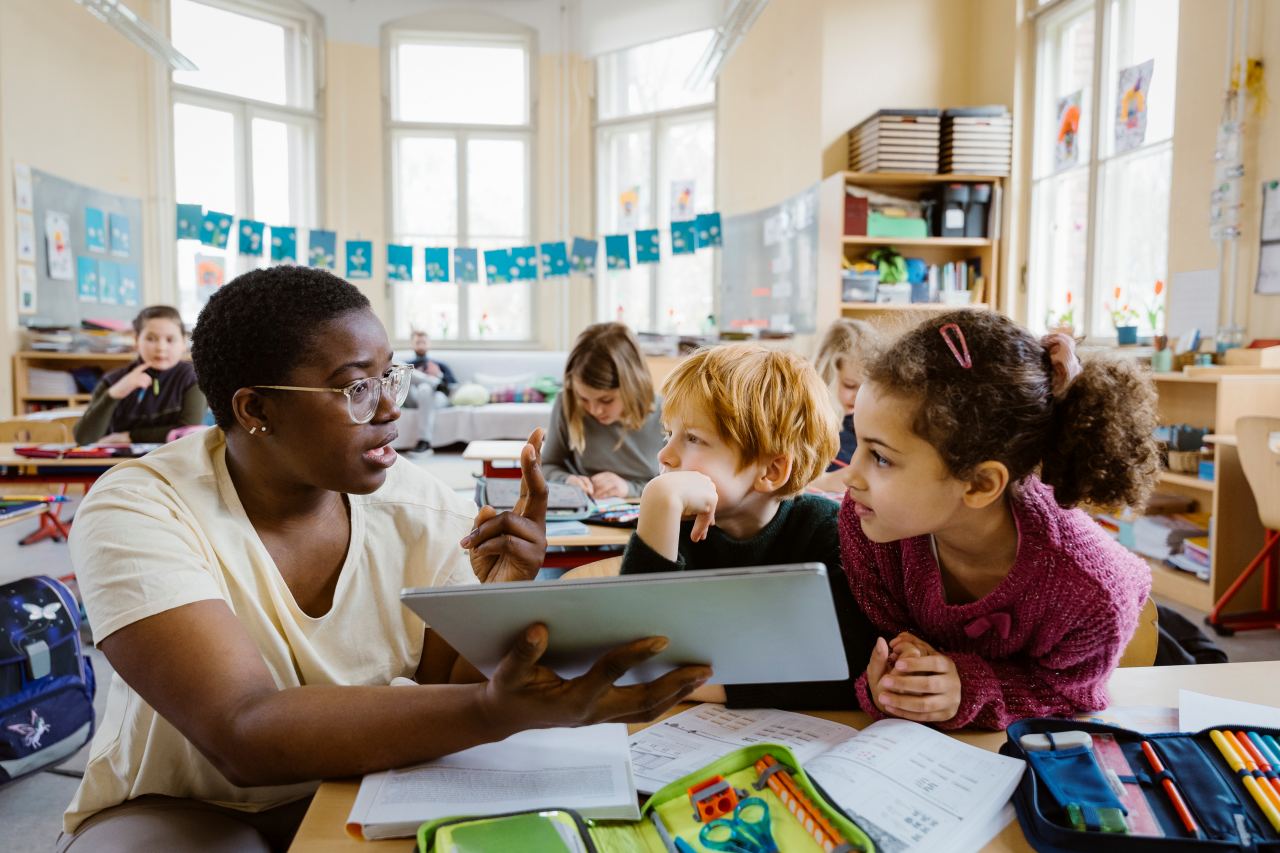Discover the Best Primary Science Tuition Singapore for Your Learning Journey
Discover the Best Primary Science Tuition Singapore for Your Learning Journey
Blog Article
Discover the Vital Benefits of Comprehending Primary Science for Young Students
The relevance of primary science education for young students extends much beyond mere understanding procurement; it offers as a basic pillar in developing essential skills such as crucial thinking, analytic, and creativity. Involving with scientific ideas with inquiry-based and interactive activities not only cultivates interest however additionally lays the foundation for durable, confident learners.
Enhancing Essential Thinking Abilities
Fostering crucial assuming skills in young learners is necessary for their cognitive growth and future academic success. Vital thinking allows youngsters to evaluate details, examine evidence, and make informed decisions, which are vital abilities in today's information-rich culture. By participating in clinical questions, young students can improve these abilities as they check out ideas through testing, thinking, and observation.
In primary science education, teachers can promote important reasoning by motivating students to ask questions, develop theories, and perform experiments. This hands-on strategy allows youngsters to practice analytical and develop logical reasoning skills. As an example, when students explore the residential properties of materials or the concepts of movement, they discover to examine their searchings for critically and reason based on evidence.
In addition, conversations and joint jobs can advertise critical thinking by giving chances for students to articulate their ideas, difficulty presumptions, and take into consideration varied perspectives. By developing a helpful environment that values query and reflection, instructors can nurture vital believing abilities that equip young learners to become independent thinkers and lifelong students. Eventually, improving these abilities lays a robust structure for their future scholastic ventures and personal growth.
Promoting Curiosity and Exploration

Primary science education and learning supplies an organized atmosphere where young learners can discover different sensations via hands-on experiments and observations. By allowing them to connect with products and take part in inquiry-based discovering, instructors create chances for kids to create hypotheses, examine their ideas, and reason. Such experiences support a feeling of marvel and excitement about scientific research.

Structure Confidence in Problem Resolving
Structure self-confidence in analytical is an important part of main science education that equips young students to come close to challenges with resilience and creativity - primary science tuition Singapore. When children are encouraged to engage with clinical principles via hands-on tasks and inquiry-based discovering, they establish vital skills in vital thinking and evaluation. This process not just enhances their understanding of clinical principles yet likewise cultivates a feeling of ownership over their understanding
To develop confidence, teachers need to develop a helpful environment where errors are deemed chances for development instead of failures. This encourages trainees to take risks and discover various options to troubles. By providing scaffolding and advice, educators can help students browse complicated tasks, gradually increasing their self-reliance in analytical circumstances.
Additionally, joint knowing experiences, such as group projects or experiments, can further enhance pupils' self-confidence as they learn to verbalize their thoughts and listen to others' perspectives. These communications nurture social skills and reinforce the concept that analytical is usually a collective venture. Inevitably, cultivating confidence in analytical prepares young learners for future scholastic challenges and outfits them with the devices needed for long-lasting knowing.
Motivating Creative Thinking and Advancement
In the realm of main scientific research education and learning, motivating imagination and development is essential for cultivating a dynamic learning atmosphere. By cultivating a society where young students can explore concepts and experiment freely, educators aid pupils establish important thinking skills and an interest for discovery. Creative thinking in science encourages children to ask inquiries, create hypotheses, and participate in hands-on tasks that stimulate their creativity.
Incorporating open-ended jobs and inquiry-based knowing into the curriculum allows students to express their distinct perspectives and remedies. When tasked with addressing an issue associated to their environment, pupils can brainstorm multiple approaches, leading to innovative outcomes that showcase their creativity. This not just grows their understanding of clinical ideas but also infuses a sense of ownership over their learning process.
In addition, innovative scientific research education nurtures partnership amongst peers, as students commonly share ideas and improve one an additional's understandings - primary science tuition Singapore. This joint spirit promotes not only innovation but likewise important social skills. Thus, by focusing on creative thinking and technology in key scientific research education, we encourage young learners to believe seriously, accept difficulties, and picture possibilities, laying a solid foundation for lifelong knowing and exploration
Planning For Future Discovering Difficulties
Young learners' capability to navigate future understanding challenges rests on a strong structure in key science education. This foundational understanding equips pupils with crucial thinking skills and an organized technique to analytical, necessary for taking on browse around here intricate problems in an ever-evolving globe. Key science promotes inquiry-based understanding, encouraging students to ask inquiries, explore theories, and participate in hands-on experiments.
As they create these abilities, students become adept at assessing data, identifying patterns, and attracting educated conclusions. Such competencies are important not only in scientific fields yet also in mathematics, technology, and design (STEM), where interdisciplinary knowledge is progressively important.
Additionally, main science education and learning cultivates a feeling of curiosity and resilience in young students, enabling them to view obstacles as opportunities for development. As they experience and get over challenges in their scientific explorations, they develop confidence in their ability to adjust and innovate.
Eventually, a strong structure in primary science not only prepares young learners for academic searches however additionally equips them with the tools necessary for long-lasting discovering and flexibility in a swiftly altering international landscape. By buying key pop over here science education, we are buying the future possibility of our learners.
Conclusion
Comprehending main science is essential for young students, as it fosters crucial thinking, inquisitiveness, and creative thinking. Involving with scientific concepts with hands-on experiments develops and enhances problem-solving capacities strength. This fundamental knowledge not only gears up trainees to assess data and acknowledge patterns however likewise supports an inquiry-based state of mind. Ultimately, the advantages of primary scientific research education and learning prepare children for future scholastic quests and instill long-lasting learning habits necessary for growing in an ever-evolving globe.
The significance of main science education and learning for young students prolongs much beyond simple understanding purchase; it offers as a fundamental pillar in creating vital abilities such as crucial thinking, analytical, and creativity. By developing an encouraging setting that values inquiry and reflection, instructors can support vital assuming skills that encourage young learners to end up being long-lasting students and independent thinkers. Thus, by prioritizing creative thinking and advancement in main science education, we empower young students to assume seriously, embrace challenges, and visualize opportunities, laying a strong structure home for long-lasting learning and exploration.
Young students' capacity to browse future learning challenges hinges on a solid structure in main scientific research education and learning.Understanding primary scientific research is important for young learners, as it cultivates crucial thinking, inquisitiveness, and imagination.
Report this page